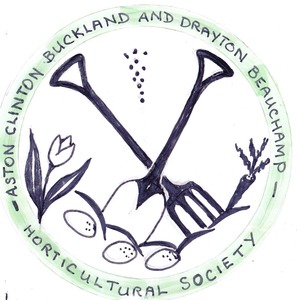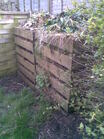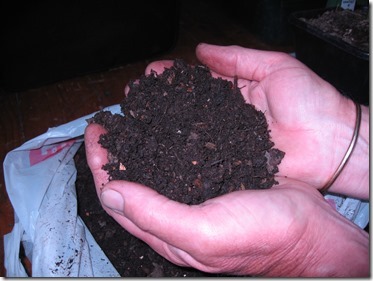The NVS Bucks DA meeting last week was on “Composting My Way” by Mick Poultney. Mick is Obsessive Compulsive Composter, chairman of the NVS West Midlands District Association, Black Country allotment keeper & member of Cradley Gardening Club.
Mick’s talk was very entertaining & covered his exploits in collecting items to include in his compost: kitchen waste from the local old people’s home. Molehills from the roadside, spent hops from the local brewery, seaweed from the nearest beach, coffee grounds from the local coffee shop, manure from a local farm, fallen leaves from the park. And that’s just for starters! Here are some notes from the talk, if you want to find out more:
Here’s a more detailed write-up Mick Poultney’s composting method.
There’s also a video on YouTube of Mick making his compost, which is worth a look if you have 10 minutes or so to spare. Or the Society has his DVD - available for hire - please let us know if you'd like to borrow.
But to do you have a lot of time to spend composting? I certainly don’t – I have too many other things to do! So here are a few hints & tips for the humble gardener & allotment keeper:
The compost bin……….
Firstly, you need to sort out a compost bin. Yes, those are mine, obviously in need of some TLC! For those handy people, you can find lots of ideas on how to build one for next to nothing. Take a look at the Gardeners World site, which shows how to build a compost heap from old wooden pallets. Or you can buy one – I did think that the council might be selling some cheap, but they’re not – have a look on the getcomposting website. Might be worth a look on freecycle to see if you can pick anything up for free. Wherever you put your compost heap, best to put in directly on the soil, not on concrete – water can drain away & hopefully you’ll get some worms.
Filling your compost bin……………
So what can you put in your compost bin? Greens (kitchen vegetable waste, weeds, lawn clippings, soft green prunings etc), browns (cardboard, woody prunings, etc) and various other stuff – you can find lists of what you should and shouldn’t put on your heap on various websites including the Garden Organic website. Apparently worms are not great fans of citrus fruit or onions, so don’t put too many in the compost.
Your compost should decompose quicker if you chop everything up – the smaller the better. Also, best to layer the materials, a layer of green stuff, then a layer of brown stuff. You should also try to put in layers of soil (or mole hills for the extremists) as this contains good bacteria & fungi.
You then need to ensure you keep your compost warm & moist, but not too wet, otherwise you’ll lose all your worms, either through desertion or death! Stick a bit of old carpet on top of the heap & just check it every couple of weeks. If it’s a bit dry, water it & if you can’t find any worms then you best get down the local Angling shop!
Speeding up the composting process…..
It is possible to speed up the composting process by adding “compost activators” to your compost heap. Here are a few ideas:
- Why urines great for compost heaps
- Comfrey as a compost activator
And you should hopefully get some good compost.................
I could keep rambling on about composting for much longer, but I think that’s enough for now, I need to go and do some potting up. But, if you do want to find out more, then there’s lots of info on the web including the Garden Organic website.
And here are my new, shiny compost bins - I just need to do it properly now!




